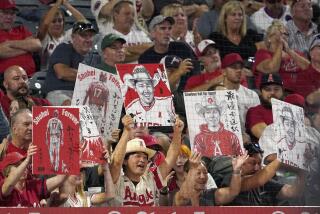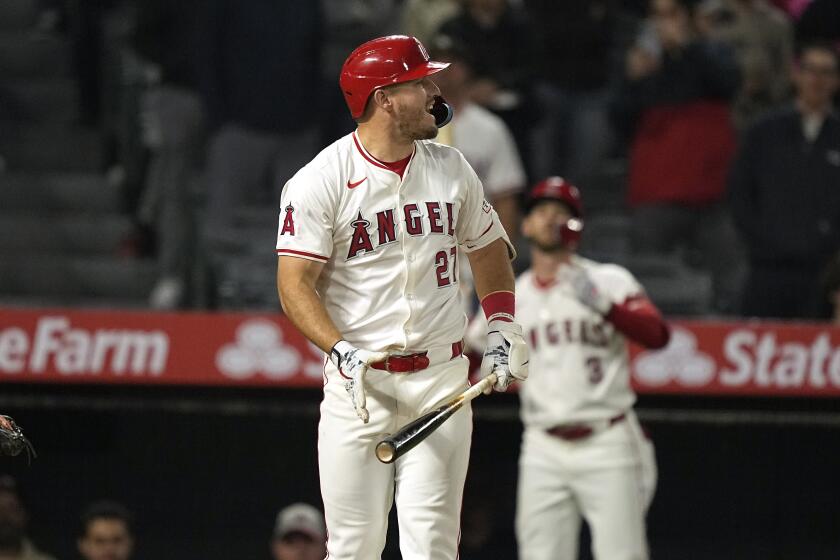Angels Like Their Chances Better in Seven-Game Playoff Series
In a baseball season in which the word strike may yet have more to do with missed work than missed swings, there is something that the players and owners have agreed upon.
That is the changing the league championship series from the best-of-five to best-of-seven game format, matching the World Series setup.
Ever since the American and National Leagues switched to the East-West divisional setup in 1969, the league championship series have been the best-of-five games and not without their critics.
Among those who are not enamored of the old format are the Angels, a team whose last playoff appearance, in 1982, was a painful lesson in the dangers of the five-game format.
In that series, the Angels won the first two games at home and seemed on the verge of their first World Series appearance, but three games later--all played at Milwaukee--the Brewers went on to meet the St. Louis Cardinals in the World Series.
Tuesday at Anaheim Stadium, a couple of players involved in that matchup reflected on the differences between the old and new formats.
“I recall that we had three really lousy days (of weather) back there,” Angel third baseman Bobby Grich said. “I would like to have come back here and played two more games.”
The five-game format didn’t necessarily favor cold-weather teams as much as it did whichever team had the last three games at home.
Last season in the National League championship series, after all, the Chicago Cubs won the first two games at Wrigley Field and then lost the next three at San Diego.
Grich said that, despite the fact that the possibility of bad weather and added travel were key factors, the players voted for the change anyway.
“The weather is definitely a consideration, especially if one of the Canadian teams (Toronto or Montreal) are involved,” Grich said. “And if it goes seven, there is more travel involved--it’s not an easy thing to fly from coast to coast twice in four days.
“But the owners wanted it and asked us to consider it, and knowing the money that it might generate, that was a concession we made out of respect and consideration to the owners.”
Grich’s counterpart at third base on the Brewers, Paul Molitor, favored the change of formats as well.
“The team with those last three games at home has a pretty good advantage,” Molitor said. “Seven games seems more fair.”
“And playing those extra two games shouldn’t really take any more toll on the players. With the World Series on the line, you don’t really care about how many games you have to play to get there.”
Angel Manager Gene Mauch said he felt that the change was made some three years too late.
Had the Angels had two more chances against the Brewers in 1982, Mauch might have been in the World Series instead of hanging up his uniform for two years to become the team’s director of player personnel before returning to the field this season.
“Now, if you win the first two and lose the second two, you can do things a lot differently than if it were a five-game series,” Mauch said. “It would have been nice to have finished that one out at home.
“And the change shouldn’t bother the players. When we started the playoffs in ‘82, we felt it was like Opening Day. There wasn’t a tired body or tired mind on the team.”
With the addition of two more possible playoff games, one of the biggest changes as far as strategy goes regards the pitching.
That is, if the playoffs go seven games, a team’s best starter might have to pitch in Game One, Game Four, and Game Seven, meaning that he would then likely miss the first game of the World Series.
More to Read
Go beyond the scoreboard
Get the latest on L.A.'s teams in the daily Sports Report newsletter.
You may occasionally receive promotional content from the Los Angeles Times.





